Taking Cold Medicine during Breastfeeding – Is It Safe?

If you have a cold, it may interfere with just about everything that you do. So it’s no wonder that at the first sign of it, you would hit the pharmacy or take some cold medicine. However, this may not be recommended while you have a little one depending on your for its nutrition. If you are a breastfeeding mom, you will need to take precautions before you take any cold medicines. While this does not mean that you cannot take any at all, it is better to know what is safe and what isn’t.
Can a Breastfeeding Mom take Medicines for a Cold?
Can breastfeeding mothers take cold and flu tablets to get relief from the symptoms? Yes. However, you should be wary about the ingredients in these medicines as they can be passed on to your baby through breast milk. Hence, it is always recommended that you check the ingredients or get prescription medicines from a doctor after having explained your condition.
Safe Cold Medicines for Breastfeeding Mothers
Here is a list of safe and best cold medicines for a breastfeeding mother.
1. Paracetamol or Acetaminophen
Medicines with the active compound acetaminophen like Tylenol, Crocin, etc., can be taken for a cold while breastfeeding. An analgesic, acetaminophen can relieve you from fever, inflammation, and pain. Although acetaminophen will pass on to the baby through your breast milk, it will not cause any harm.
2. Ibuprofen
Ibuprofen is considered safe for the baby and only passes on to the baby in micro-quantities, which does not harm. Ibuprofens like Advil are non-steroidal, anti-inflammatory drugs or NSAIDs which can lower fever, pain and inflammation. It can also be used for flu, headache, or cold caused by sinus infections. It is best to get a prescription for this as it is not recommended for women with asthma and stomach ulcers.
3. Dextromethorphan
This is safe for breastfeeding moms and is generally taken to suppress cold and cough. However, women with conditions like asthma, bronchitis, diabetes, and liver disease should not take the medicine as it could make their condition worse.
4. Bromhexine and Guaifenesin
These are prescription medicines and can cure a chesty cough by loosening the mucus in the chest through the cough-reflex. These are safe for both the mother and the child, and are considered a useful cold tablet during breastfeeding, for relief from congestion.
5. Amoxicillin
This is an antibiotic used to treat cold and sinus infections. Although, there have been some isolated cases of side-effects in babies, these resolve on their own and hence the medicine considered safe for lactating moms.
6. Zinc Gluconate
This cold-relieving medicine is an over-the-counter drug, but it is recommended that you consult a doctor before taking it. It can be used a gel, which is administered through the nose. The localised, topical application when limited to 12 mg a day makes it safe for mothers and babies.
7. Chlorpheniramine and Hydroxyzine
These are antihistamine drugs and are used to treat allergy-induced stuffy, blocked or a runny nose. You may even be prescribed this during hay fever. These are considered safe for lactating moms and babies as only a small amount is passed on through breast milk. While isolated incidences of colic, drowsiness, irritability were noticed in babies, these were resolved without any medical intervention.
8. Saline Nasal Drops or Sprays
Saline nasal sprays or drops help relieve congestion but providing moisture to the nasal tissues and draining thick mucous. They also alleviate nasal irritation. However, make sure you speak to your doctor for a safe brand of nasal drops and sprays that doesn’t make use of steroids.
9. Menthol Rubs
Menthol rubs like Vicks help provide relief from congestion too, by draining any thick mucous. You can apply these on your chest, back, and on the soles of your feet. Menthol rubs can also be added to a steam inhalation device for instant relief from sinus or congestion.
Unsafe Cold Medicines during Breastfeeding
Following are the cold medicines that you should avoid when breastfeeding.
1. Aspirin
Aspirin can lead to acidosis in babies which lowers the ability of the kidneys to maintain the pH levels in the blood and makes it more acidic. It can even cause Reye’s syndrome in babies which can make their blood thin and cause the liver and the brain to swell.
2. Codeine and Dihydrocodeine
These are analgesics, which convert to morphine in the liver after consumption. They affect the central nervous system and also cause diarrhoea, drowsiness, and weakness in the baby as it breaks down slowly in the still-developing liver of the infants.
3. Pseudoephedrine
Used as a decongestant to clear accumulation of mucus in the sinus and the nasal passage, this drug can lower the production prolactin in the mother. This can reduce the supply of breast milk by around 24 percent and cause the baby to be underfed.
4. Phenylephrine
Also a decongestant, this drug is known to have similar effects as that of pseudoephedrine. It is also believed to cause drowsiness in babies.
5. Xylometazoline and Oxymetazoline
These are commonly used in nasal sprays. Since there isn’t enough evidence to confirm their effect on breastfeeding moms and babies, it is advised that you avoid them.
6. Guaifenesin
Guaifenesin is an expectorant that thins any mucous that has built up, and allows it to drain. While there hasn’t been too much research conducted on this drug, it has been found to cause certain hernias in babies.
7. Hydrocodone
High levels of hydrocodone can be transferred to babies via breastmilk. This can build up in the baby’s system and cause certain issues. Hence, medicines with this ingredient should be taken with caution.
8. Multi-Symptom Medications
Multi-symptom medications are used to treat several symptoms at once. However, the high ingredient list increases the chances of unwanted substances being passed on to the baby. If you have a cold, speak to your doctor and treat your symptoms individually to control what substances are being ingested by your body.
9. Cafergot
Cafergot is used to treat migraines, which are often a symptom associated with sinus and congestion. This should be strictly avoided during breastfeeding as it can cause nausea, diarrhoea and other issues in an infant when passed through breastmilk.
Cold Medications Precautions to be Taken
While taking any form of medications for a cold, these are the precautions that you will need to keep in mind.
- Avoid medicines with a high alcohol content.
- Take single-ingredient medicines to limit your baby’s exposure to OTC drugs.
- Take medications after you breastfeed and avoid breastfeeding for two or three hours after taking the medicine to avoid exposure to the baby.
- Avoid taking extra-strength medications or dosages as they will stay in your system and milk supply for longer.
- If you take lozenges, ensure that you read the ingredients. Avoid anything with povidone-iodine as it increases the level of iodine in breast milk which can increase the risk of transient hypothyroidism in babies.
- Keep an eye on your baby for symptoms like irritability, vomiting, or refusal to feed. These could indicate that some substances may have passed on to the baby.
Side-Effects of Cold Medicines on Breastfeeding Mom and Baby
Some safe cold medicines can cause minor side-effects like drowsiness, irritability, and jitters in babies. These are often known to resolve themselves. Certain others that are deemed unsafe can cause a range of side effects like lowering the supply of breast milk in the mother, making the blood acidic, causing organs like the brain and liver to swell, etc. These medicines should be avoided at all costs during breastfeeding.
Natural Remedies For Cold During Breastfeeding
If you wish to avoid taking any cold medications while breastfeeding, some home remedies could come to use. These help treat symptoms naturally and will give you relief.
1. Steam Inhalation
Steam inhalation helps loosen and drain mucous to give you relief from congestion. You can even add Vicks or camphor to the steam device for better results.
2. Stay Hydrated
Drink lots of fluids in the form of hot water, green tea, and soup. This will help avoid dehydration and mucous build up, so you more relaxed through the day.
3. Salt Water Gargle
No natural remedy for cold is complete without salt water gargling. This keeps your throat moist and avoids dehydration. If you have a sore throat, gargling with salt water will also help give you relief.
4. Humidifier
Dehydration is an enemy when it comes to fighting off a cold. Use a humidifier in the room to keep the air around you moist, and you should be able to sleep as well as your baby.
5. Honey Lemon Water
Both honey and lemon ease symptoms associated with congestion. Simply heat a cup of water and add a teaspoon each of honey and lemon juice. Sip on this magic potion through the day for relief.
When to Consult a Doctor?
Most of the times, a cold can be mild and subside within a few days. However, if it persists and you notice symptoms like wheezing, facial pain, ear ache, a severe cough, etc., you will need to consult a doctor. These symptoms could indicate more than a cold, for example, ear infection, strep throat, pneumonia, flu, sinusitis, and bronchitis.
FAQ
1. Can You Have Antibiotics While Breastfeeding?
Antibiotics are safe in most cases for breastfeeding mothers. However, the dosage and ingredient list is important to note, as certain substances can harm the baby in excessive amounts. Consult your doctor before starting a course of antibiotics to ensure both you and your baby are safeguarded.
Although taking OTC drugs for a common cold is the norm, it is advised that you consult a doctor before taking any medications while you are pregnant or breastfeeding to avoid any complications for the baby and yourself.
References/Resources:
1. Breastfeeding and medications: What’s safe?; Mayo Clinic; https://www.mayoclinic.org/healthy-lifestyle/infant-and-toddler-health/in-depth/breastfeeding-and-medications/art-20043975; August 2022
2. Breastfeeding and medicines; NHS; https://www.nhs.uk/conditions/baby/breastfeeding-and-bottle-feeding/breastfeeding-and-lifestyle/medicines/; September 2022
3. Mitchell. J; Use of cough and cold preparations during breastfeeding; PubMed; https://pubmed.ncbi.nlm.nih.gov/10776186/; December 1999
4. Jordan. S, Bromley. R, Given. J, et al.; Breastfeeding, pregnancy, medicines, neurodevelopment, and population databases: the information desert; PubMed; https://pubmed.ncbi.nlm.nih.gov/35915474/; August 2022
5. Prescription Medication Use; Centers for Disease Control and Prevention; https://www.cdc.gov/breastfeeding/breastfeeding-special-circumstances/vaccinations-medications-drugs/prescription-medication-use.html
6. Frattarelli. D, Galinkin. J, Green. T, et al.; The Transfer of Drugs and Therapeutics Into Human Breast Milk: An Update on Selected Topics; American Academy of Pediatrics; https://publications.aap.org/pediatrics/article/132/3/e796/31630/The-Transfer-of-Drugs-and-Therapeutics-Into-Human?autologincheck=redirected%3b+September+2013; September 2013
7. Drugs and Lactation Database (LactMed®); National Library of Medicine; https://www.ncbi.nlm.nih.gov/books/NBK501922/
Also Read:
Abortion Pills during Breastfeeding
Are Medications Safe while Breastfeeding?
Is It Safe to Take Naproxen while Breastfeeding?
Was This Article Helpful?
Parenting is a huge responsibility, for you as a caregiver, but also for us as a parenting content platform. We understand that and take our responsibility of creating credible content seriously. FirstCry Parenting articles are written and published only after extensive research using factually sound references to deliver quality content that is accurate, validated by experts, and completely reliable. To understand how we go about creating content that is credible, read our editorial policy here.








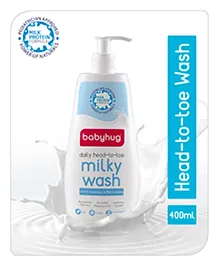
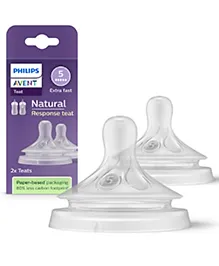
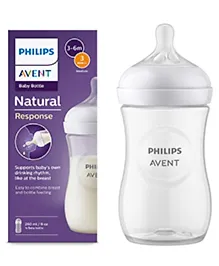
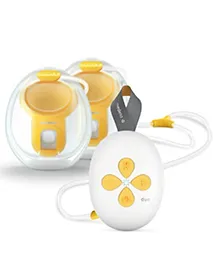
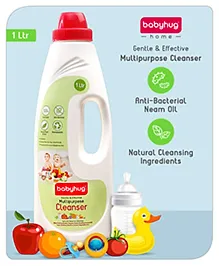
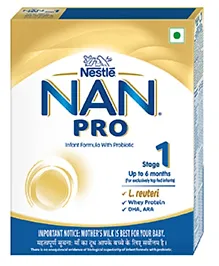
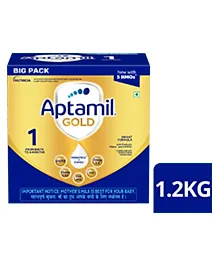
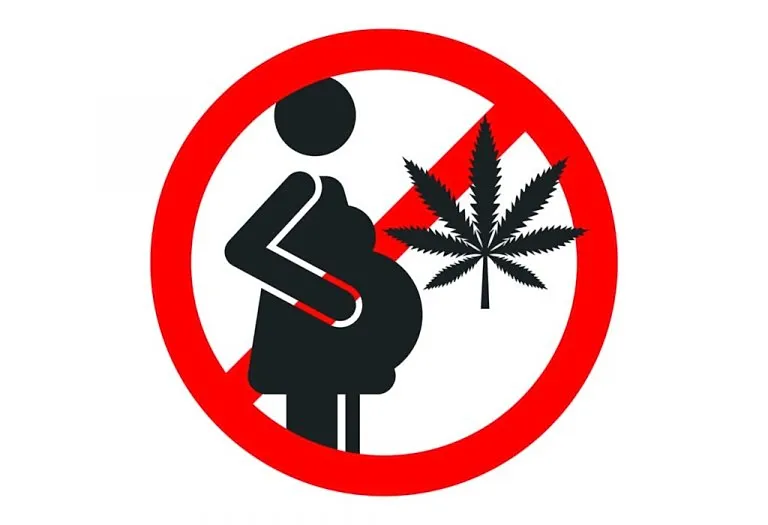






.svg)


















